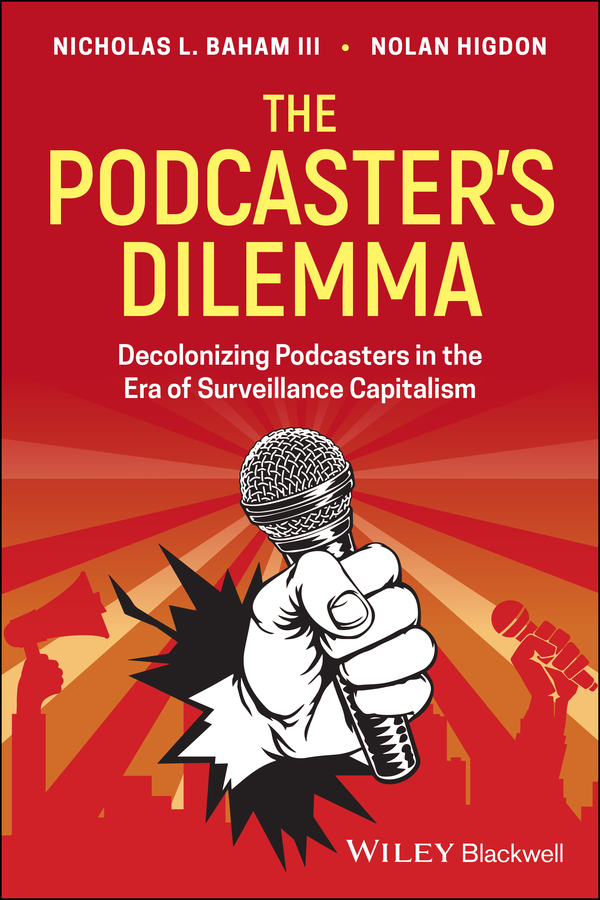<p><b>A fascinating exploration of modern podcasting as a tool for decolonization</b></p> <p>In <i>The Podcaster’s Dilemma: Decolonizing Podcasters in the Era of Surveillance Capitalism</i>, Drs. Nolan Higdon and Nicholas Baham III connect contemporary podcasting to the broader history of the use of radio technology in the service of anti-colonial struggle and revolution. By organizing the book’s analysis of decolonization through podcasting via three distinct activities—interrogation and critique, counter-narrative, and call to action—the authors create a lens through which they analyze and evaluate the decolonizing potential of new podcasts.</p> <p>The book also critiques the threat to the decolonizing efforts of some modern podcasts by the growing phenomena of surveillance capitalism and the emerging podcast oligopoly. <i>The Podcaster’s Dilemma</i> reveals both potential and challenges in the podcasting space as podcasters struggle to put forward insightful new narratives funded by anti-capitalist models.</p> <p>This important book also includes:</p> <ul> <li>A thorough introduction to the podcasters profiled in the book and an examination of how they’re using podcasts to decolonize themselves from colonial mentalities</li> <li>Practical discussions of how the profiled podcasters interrogate and critique the veracity of neoliberal, racist, imperialist, patriarchal, heterosexist, classist, and ableist white-centered ideologies</li> <li>Comprehensive explorations of the counter-narrative production phase of a decolonizing podcaster’s process</li> <li>In-depth treatments of the community activism created by decolonizing podcasts</li> </ul> <p><i>The Podcaster’s Dilemma: Decolonizing Podcasters in the Era of Surveillance Capitalism</i> is an indispensable new resource for critical media, communications, ethnic studies, and political science scholars, as well as undergraduate and graduate students. It is also perfect for anyone interested in the broad expansion of intersectional voices in dialogue about everything from political organizing to plant-based diets.</p>
History, Interdisciplinary studies, Society and culture: general, Sociology and anthropology
The Podcaster’s Dilemma
Original price was: ₹3,206.00.₹2,404.00Current price is: ₹2,404.00.
Decolonizing Podcasters in the Era of Surveillance Capitalism
This book is currently not in stock. You are pre-ordering this book.

